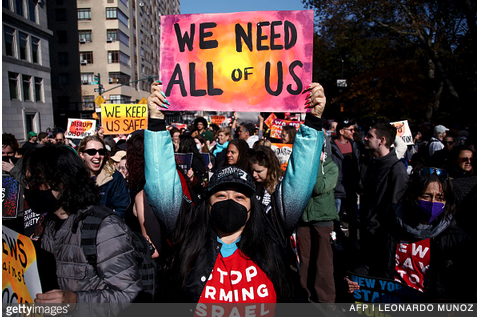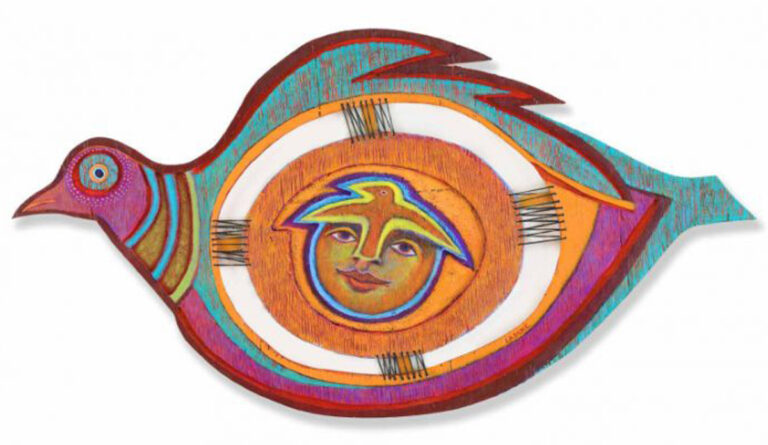| Not since the civil rights movement has America seen the level of racism and bigotry that’s now coursing through the mainstream and tearing at the seams of our nation. But unlike that era, extremists who promote hate are now able to recruit young people and spread radicalizing propaganda through the power of social media, a tool their forebears could never have imagined. To help people understand the threat this radicalization poses and the impact it’s having on America society, the Southern Poverty Law Center launched its first original podcast, Sounds Like Hate, in August. The audio documentary series, produced and hosted by award-winning journalists/producers/ In Season 1 of Sounds Like Hate, Moriba and Paksima present three compelling and very different episodes, divided into 40-minute parts, that shed light on national tensions surrounding race, discrimination and hate. Through their vivid storytelling, listeners enter the worlds of people grappling with the effects of hate and extremism, taking a deep dive into the realities of how it functions, how it spreads, who is affected and what people are doing about it. This week, the SPLC released the third and final episode of Season 1 – “Baseless.” It takes listeners inside a violent neo-nazi group known as the Base, with secretly recorded conversations that reveal the worldviews of these extremists as they discuss their desire for the collapse of American society. The result of an independent investigation, the episode analyzes more than 80 hours of audio in which the group’s leaders illuminate the organization’s approach to recruitment, radicalization and domestic terrorism. The podcast is available at SoundsLikeHate.org and your podcast app of choice. Here, we share our conversation with Moriba and Paksima on the making of the series, the inspiration behind it and what they’ve discovered about the proliferation of hate in modern America along the way. Geraldine Moriba is a journalist, filmmaker and producer who directed and wrote the acclaimed documentary “Until 20,” which screened at 15 film festivals across the world and won nine audience awards. She has served as an executive producer for PBS and CNN and as vice president for diversity and inclusion for CNN Worldwide. Previously, Moriba worked at NBC News, MSNBC and ABC News. Her awards include five Emmys, an Alfred I. DuPont Award, two Peabody Awards and the Anita Hill Gender Justice Award. Jamila Paksima is an independent filmmaker, creative director and former Pew Journalism Fellow who has been awarded for her excellence in broadcast journalism, investigative reporting and online video and animation. She co-directed and co-produced the acclaimed independent film “Until 20” and produced independent documentaries for PBS, MSNBC and the Discovery Channel before working for 11 years as a journalist at NBC News. Paksima is currently the co-executive producer and director at Until 20 Productions and executive producer and creative director of Paksima Productions Inc., her independent film and video production company. In Sounds Like Hate, you tackle a phenomenon that is tearing at the social fabric of our country – the proliferation of hate and the radicalization that accompanies it. What attracted the two of you to this project? And what was your thought process in deciding how to approach such an intense and complex subject? Geraldine: My entire career has been based on reporting news stories about social equity, justice and the evolution of culture. I’m interested in reporting on America’s challenges with systemic racism, and I’ve developed a body of experience that can be applied to unpacking the rising rates of white domestic terrorism. So, when I was approached by SPLC about creating a podcast, I immediately had an idea about what could be done. Little did I know then the president would place an executive order banning anti-racism workshops in the federal government and expand it to include federal contractors, or that white supremacists would be emboldened to the point of openly posting their accelerationist plans on social media. This is the epitome of white privilege and confirms that the focus of the first season on American extremists was the right choice. This editorial challenge motivated me to invite Jamila to be my production partner. We had worked together on independent projects before. I’ve always been impressed by her passion for human rights reporting and dedication to stories about people or communities in deep conflict or crisis. Together we’re creating an audio documentary series to tease out the motivations behind hate. We’re examining the ways in which extremist groups encourage violent, terroristic behavior and how international networks are prepping for the collapse of America. This isn’t pleasant reporting. The people we want to speak with the most don’t want to speak with us. But this is our mission. In solidarity, Your friends at the Southern Poverty Law Center P.S. To learn more about “Baseless,” join us for a live Sounds Like Hate panel discussion on Wednesday, Oct. 21. RSVP here. |

How We Can meet the Challenges of Authoritarianism
This is not our first rodeo with authoritarianism. Americans have collectively risen to seemingly impossible challenges in the past, and we can do so again. By Maria J. Stephan Analysis

